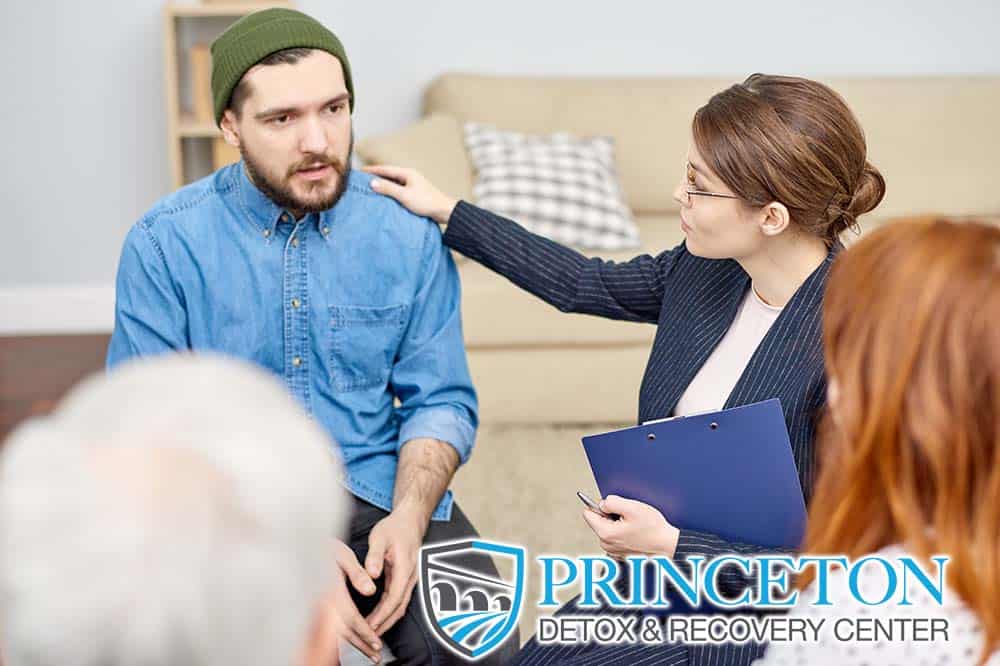Addiction is a complex disorder that affects the mind, body, and spirit. Holistic addiction treatment is an approach to recovery that focuses on healing the whole person by addressing all aspects of the individual. This type of treatment incorporates evidence-based practices and alternative therapies such as yoga, meditation, nutrition, exercise, art therapy, music therapy, and outdoor activities.
Healing the Mind & Body as a Whole
Holistic addiction treatment recognizes that addiction is not just a physical issue but also an emotional one. It takes into account the underlying causes of addiction and works to heal both the mind and body simultaneously. This type of treatment looks at how lifestyle choices can affect overall health and well-being. It also examines how mental health issues such as depression or anxiety may contribute to substance abuse and dependence. By taking this comprehensive approach to recovery, holistic treatment helps you gain insight into your own behavior and make positive changes in your life.
Addiction treatment programs, like those provided by Princeton Detox & Recovery Center, offer a multi-disciplinary approach to recovery to help you heal body, mind, and spirit. We will work with you to develop an individualized and effective program to help you recover from addiction and get you on the road to long-term sobriety. We believe in the benefits of a full curriculum of clinical care, beginning with medical detoxification, transitioning into a higher level of treatment (including holistic therapies), and concluding with personalized aftercare planning. Contact us today to learn more about our treatment options in your area.
Integrating Alternative Therapies in Substance Abuse & Addiction Treatment
Alternative therapies are becoming increasingly popular in substance abuse and addiction treatment programs. These therapies often focus on relaxation techniques such as yoga or meditation, which can help reduce stress levels and improve overall mental health. Other alternative therapies include art therapy, music therapy, nutrition counseling, exercise programs, and outdoor activities such as hiking or camping, which can allow you to connect with nature while engaging in healthy activities. All of these alternative therapies have been shown to be beneficial in helping you recover from substance abuse and addiction.
We Are Here For You
Let Us Help You Heal
Our Drugs & Alcohol detoxification experience is second to none.
Learn how we can help by speaking with one of our Treatment Advisors today.
Nutrition & Exercise & Their Role in Holistic Addiction Recovery
Nutrition plays an important role in holistic addiction recovery because it helps restore balance to the body’s systems disrupted by substance abuse or addiction. Eating a balanced diet can help improve moods while providing essential nutrients needed for the proper functioning of the brain and body.
Exercise has also been shown to be beneficial for recovering from substance abuse or addiction because it helps reduce stress levels while improving overall physical health. Regular exercise can also help improve self-esteem, which is often low among those struggling with substance abuse or addiction.
How Meditation & Mindfulness Can Aid in Finding Inner Peace
Meditation has long been used to find inner peace and reduce stress among those suffering from substance abuse or addiction issues.
Mindfulness meditation involves focusing on one’s breath while allowing thoughts to come and go without judgment or attachment. This practice has been shown to reduce anxiety levels while increasing feelings of calmness and relaxation, which can benefit those recovering from substance abuse or addiction issues. Additionally, mindfulness meditation can help you gain insight into your behavior patterns so you can make more informed decisions about your future choices regarding substance use or other behaviors related to your recovery process.
The Effectiveness of Art & Music Therapy
Art therapy has become increasingly popular among those seeking holistic approaches to treating substance use disorders (SUDs). Art therapy allows you express yourself creatively through painting, drawing, sculpting, writing poetry/prose, etc. Tapping into your creative side can help you gain insight into your emotions while providing an outlet for self-expression without fear of judgment from others.
Music therapy has also been effective in helping you recover from SUDs by providing an outlet for self-expression through songwriting, lyric writing, singing, or playing an instrument. These activities can help reduce stress levels while promoting feelings of joy and peace.
Healing Through Nature Utilizing Outdoor Activities
Nature provides many opportunities for healing during recovery. While hiking or camping, you can observe wildlife up close. Swimming is a great way to exercise without putting stress on your joints and can help you relax. Beach walks are a great way to take time for reflecting while being soothed by the sound of waves. Even a stroll through a city park can have a therapeutic effect.
These opportunities provide opportunities for personal growth while building physical strength and stamina. Additionally, spending time outdoors has been found beneficial in reducing symptoms associated with depression and anxiety due to its calming effect on the nervous system.
Holistic Approaches to Relapse Prevention
Relapse prevention is an important part of any successful recovery program because it helps you identify potential triggers that could lead you back down the path towards using. Holistic approaches such as yoga/meditation/mindfulness practices can help you recognize early warning signs before you spiral out of control. Nutrition counseling and exercise programs have also been found helpful in managing cravings associated with relapse since proper nutrition provides essential nutrients needed for the appropriate functioning of brain chemistry, while regular exercise releases endorphins that promote feelings of happiness and well-being.
Focusing On Healing Trauma & Its Connection to Recovery
Trauma often lies at the root cause behind many SUDs because it disrupts normal brain chemistry, leading people to self-destructive behaviors. Addressing trauma during recovery helps get at the root of addictive behaviors rather than just focusing on abstaining from substances alone.
Trauma-focused treatments such as EMDR (Eye Movement Desensitization Reprocessing) have proven effective in helping you heal from trauma so you don’t continue influencing current behavior patterns leading towards relapse.
Finding Meaning, Connection & Purpose Through Spirituality in Holistic Addiction Treatment
Spirituality plays an important role in holistic approaches towards treating SUDs because it provides meaning, connection, and purpose, motivating you to make positive changes, thereby aiding the recovery process. Spirituality also provides hope, faith, strength, and courage when facing difficult times during the recovery journey. Furthermore, spirituality offers an opportunity to learn new skills and develop better coping mechanisms to manage stress more effectively, thus improving chances of long-term sobriety.
Contact Us Today
No matter the substance, the best way to overcome addiction is with the help of experienced, trusted professionals like those at Princeton Recovery & Detox Center. We provide comprehensive treatment, including medically-assisted detox, therapy, specialty programs, holistic therapies, and reintegration support. Our caring and skilled administrative, medical, and clinical teams will guide you through every step of your recovery process from the first time you call. We provide a complimentary assessment and a free insurance benefits check and help coordinate local travel to our facility. All you have to do is ask; we will take care of the rest. Contact us today.

Reviewed for accuracy by:
Amanda Hilzer M.Ed, CAADC, IADAC, ICCS, LCADC, CCS
Amanda graduated from Lehigh University with both an undergraduate degree in Psychology and a Master’s of Education degree in Counseling Psychology and has worked in the field of substance use disorder treatment and mental health treatment as a counselor and as a clinical manager for over 14 years.


































